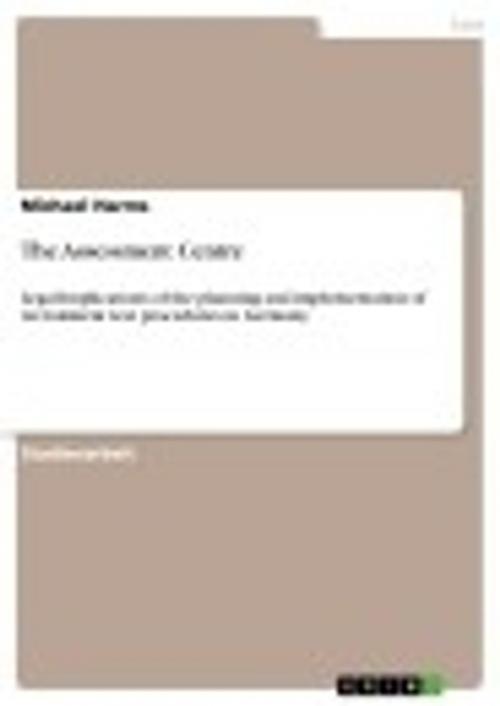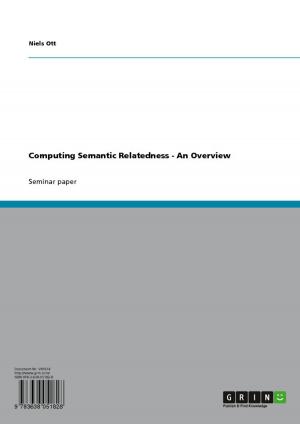The Assessment Centre
Legal Implications of the planning and implementation of recruitment test procedures in Germany
Nonfiction, Reference & Language, Law, Labour & Employment| Author: | Michael Harms | ISBN: | 9783640892365 |
| Publisher: | GRIN Verlag | Publication: | April 13, 2011 |
| Imprint: | GRIN Verlag | Language: | German |
| Author: | Michael Harms |
| ISBN: | 9783640892365 |
| Publisher: | GRIN Verlag |
| Publication: | April 13, 2011 |
| Imprint: | GRIN Verlag |
| Language: | German |
Studienarbeit aus dem Jahr 2009 im Fachbereich Jura - Zivilrecht / Arbeitsrecht, Note: keine, Hochschule Bremen, Sprache: Deutsch, Abstract: Assessment Centre procedures (AC-procedures) are widely used as a target orientated business personnel applicant selection method, and are deployed in larger, and increasingly in medium scale companies. Whilst the currently available literature on this particular topic mainly covers the personnel policy and psychological aspects such as development, implementation and usage of AC procedures, but also strategies, tasks, exercises and the prognostic validity, the legal implications of conducting recruitment tests have hardly been looked into. However, it is especially in conjunction with individual and collective employment legislation implications and also under the legal aspects of data protection that the planning and implementation of an AC raises a number of different questions for human resources representatives in practice. Through the combination of a number of different procedures, the AC tests prove a high degree of validity as far as the measurement of the actual suitability of the applicant is concerned, as well as a high level of accuracy and objectivity. But above all, they are highly transparent and offer the participants a good insight into, and comprehension of the procedures. Secondly, the advantages of an AC test, for the individual applicant, lie in the fact that it can reveal relevant statements about their potential, and give the applicant the assurance, because of the extra aptitude tests to see if they can do the job in question, that their abilities and aptitudes are in line. This paper will first of all outline exactly what an Assessment-Centre is, what characteristics it has, when and under what circumstances it is appropriate to implement and what exactly takes place. With this as a basis, we will be looking at the legal implications of an AC procedure in great detail, and what one needs to consider legally when conducting such a test. Thereby it is basically all about the question of exactly to what level the general personal rights and the human dignity of the participants are affected, what co-determination rights the works council have when introducing and conducting aptitude tests and what data protection rights implications do aptitude tests have. A final summery will conclude this paper.
Studienarbeit aus dem Jahr 2009 im Fachbereich Jura - Zivilrecht / Arbeitsrecht, Note: keine, Hochschule Bremen, Sprache: Deutsch, Abstract: Assessment Centre procedures (AC-procedures) are widely used as a target orientated business personnel applicant selection method, and are deployed in larger, and increasingly in medium scale companies. Whilst the currently available literature on this particular topic mainly covers the personnel policy and psychological aspects such as development, implementation and usage of AC procedures, but also strategies, tasks, exercises and the prognostic validity, the legal implications of conducting recruitment tests have hardly been looked into. However, it is especially in conjunction with individual and collective employment legislation implications and also under the legal aspects of data protection that the planning and implementation of an AC raises a number of different questions for human resources representatives in practice. Through the combination of a number of different procedures, the AC tests prove a high degree of validity as far as the measurement of the actual suitability of the applicant is concerned, as well as a high level of accuracy and objectivity. But above all, they are highly transparent and offer the participants a good insight into, and comprehension of the procedures. Secondly, the advantages of an AC test, for the individual applicant, lie in the fact that it can reveal relevant statements about their potential, and give the applicant the assurance, because of the extra aptitude tests to see if they can do the job in question, that their abilities and aptitudes are in line. This paper will first of all outline exactly what an Assessment-Centre is, what characteristics it has, when and under what circumstances it is appropriate to implement and what exactly takes place. With this as a basis, we will be looking at the legal implications of an AC procedure in great detail, and what one needs to consider legally when conducting such a test. Thereby it is basically all about the question of exactly to what level the general personal rights and the human dignity of the participants are affected, what co-determination rights the works council have when introducing and conducting aptitude tests and what data protection rights implications do aptitude tests have. A final summery will conclude this paper.















